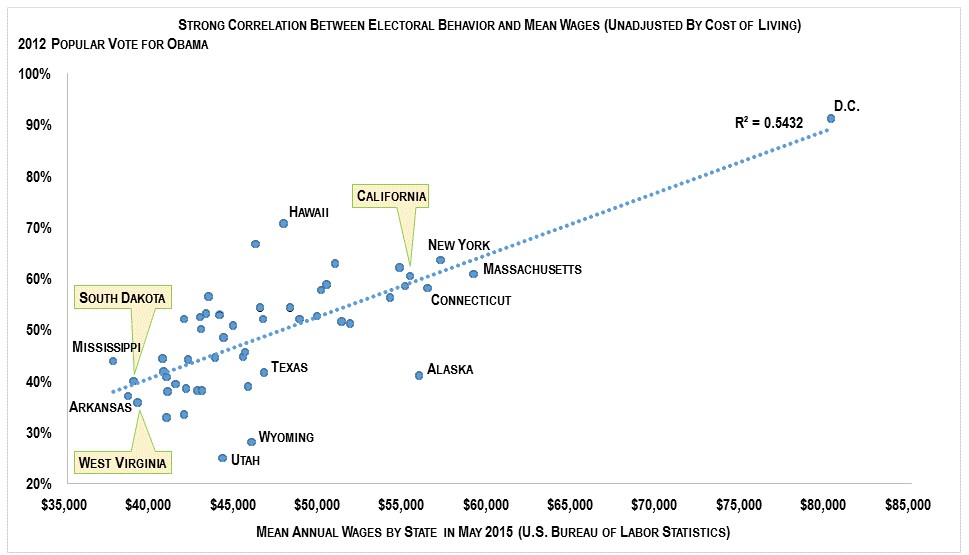This commentary originally appeared in Forbes on May 18, 2016.
The Obama Administration is determined to go out in a blaze of progressive glory—and the rest of us may be paying for it for years. The latest outrage upon economic commonsense: a more than doubling of the overtime pay threshold from $23,660 to $47,476 under a Labor Department regulation that goes into effect on December 1, a few weeks after the election, but conveniently seven weeks before the inauguration of the new president, thus depositing the economic disruption in the lap of the President’s successor.
The new rule determines those workers who are exempt from having to track their hours to determine overtime pay for time worked in excess of 40 hours in a week. It will affect 4.2 million workers who, instead of receiving the expected time-and-a-half starting in December, will instead likely see their hours cut back. Rather than pay 50% more for labor that isn’t 50% more productive, business owners are likely to instead hire more part time workers or ask more productive—and higher paid workers—to fill the gap.
There’s no such thing as a free lunch—even in the closing months of an administration.
This rule will have the greatest economic disruption in states where a low cost of living goes hand-in-hand with lower average wages. In high cost/high wage areas states such as the District of Columbia (average wage, $80,150), Massachusetts (average wage $59,010) or New York (average wage $57,030), the Labor Department’s regulation will affect a far smaller proportion of jobs than in low cost/low wage states such as Mississippi (average wage $37,620) and Arkansas (average wage $38,540).
In this, most political of administrations, it is highly illuminating to chart the damage this rule will wreak on the economy at a state level. As a general rule, more liberal states also have a higher cost of living. A large portion of this higher cost of living can be blamed on layers of regulations that drive up the cost of doing business, land use restrictions that make housing more scarce and thus, more expensive, and high taxes to pay for all the bureaucrats to administer the above regulations as well as pay for social welfare programs to ease the pain of those at the lower end of the economic ladder and, some might claim, to buy a few votes in the process.
There are 17 states and the District of Columbia where the average wage comes in above the new overtime line. Of these, 17 voted for the incumbent in the 2012 election—Alaska, the outlier, features a high cost of living due to its remote location along with high wages needed to attract workers to what many find is a less-than-ideal climate.
Of the 33 states below the new threshold wage number, only 10 voted for the incumbent and of those, only Maine (56.3%) and Vermont (66.6%) gave more than 55% of their vote for the winning presidential candidate, the other eight states were battleground states.
Charted, the relationship in the states between the 2012 popular vote and the average wage in May 2015 looks like this:

New overtime rules disproportionately affect conservative states
Similarly, comparing average wages to the American Conservative Union’srating of state legislatures’ ideological leanings shows a fairly strong correlation as well (R-squared of 0.32).
The Labor Department received some 270,000 public comments on its proposal with businesses noting that the rule would force then to cut hours, not hire as many full-time workers, and shift now salaried workers to hourly clock punchers—anything but actually pay overtime.
In addition, not all compensation that employees earn will count towards the new $47,476 threshold, meaning that many firms will have to scrap or revise incentive structures, thus reducing the ability of employers to incentivize top quality workplace performance. Think of it as instituting union shop rules on a large part of the American workforce where rising above your union comrades is discouraged. Employers will be less able to reward superior individual performance. Workplace morale and productivity will likely suffer.
Lastly, putting this rule in place a few weeks before the new administration will hand the new president a prickly dilemma: reverse the rule and risk a firestorm of criticism from the left, or leave the overtime regulation in place and allow it to visit harm economic disproportionately on the South and Midwest where the cost of living and attendant wages are the lowest.
This rule, as with myriad other federal regulations, such as the EPA’s Clean Power Plan, prove the folly of one-size-fits-all edicts from Washington, D.C.
Chuck DeVore is Vice President of National Initiatives at the Texas Public Policy Foundation. He was a California Assemblyman and is a Lt. Colonel in the U.S. Army Retired Reserve.